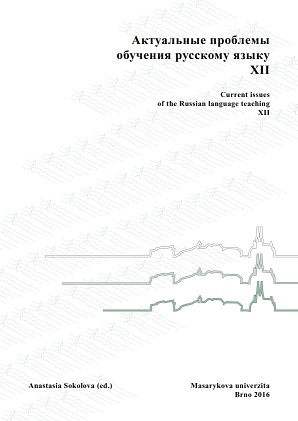Активный двуязычный словарь в парадигме антропоцентрической лексикографии
Active bilingual dictionary in the paradigm anthropocentric lexicography
Author(s): Tatiana Alexandrovna Tripolskaya, Elena Yurievna Bulygina
Subject(s): Foreign languages learning, Lexis, Pragmatics, Eastern Slavic Languages, Philosophy of Language, Philology
Published by: Masarykova univerzita nakladatelství
Keywords: lexicography; active dictionary; integrated dictionary entry; bilingual lexicography;
Summary/Abstract: The general idea of the dictionary of active type was introduced by A. Rey and S. Delesalle: «a dictionary begins to live from the moment when it presents not only meaning of the words but their functioning» (1983). The concept of active dictionary was further developed in Russian studies. If A. Rey and S. Delesalle focused on pragmatic information in a dictionary entry, Russian lexicographers discuss the problem of the relation between linguistic and encyclopedic information in the dictionary, offering to "walk away" from the minimization of the classical dictionaries (Gak 1988). In the modern theoretical lexicography it is of importance to create a universal/active dictionary: the purpose of the dictionary, the recipient, the amount of lexicographic information, methods of presentation, sources and metalanguage (Apresyan 2014). The main concepts of the active bilingual lexicography are reflected in the French-Russian dictionary of active type, which has a different purpose than active monolingual dictionaries and "aims to show explicitly relationships between language and speech: … show the transition from a system of word meaning and its translation to typed contextual meanings and their translation, noting the diverse resources available to the target language to convey various meanings of the source language" (Gak, Triomphe 1998). The authors follow cognitive-encyclopedic trend, including not typical for a bilingual dictionary information about the thematic groups ("soccer" and "chess" vocabulary, kinship terms, card games, etc.), about the composition and functioning, for example, causal verbs, speech genres of the fear, the prohibition, as well as the ways of expressing the questioning and the negation, etc. – information that facilitates the development of system and functional parameters of the language. In this case, we can speak about a different recipient of the dictionary – about the user who is mastering a foreign language. The user simultaneously receives knowledge of language and knowledge about language. Pragmatic information (the emotional-evaluative, national, cultural, ideological, gender, social, etc.) is not conceptually comprehended as an object of lexicographic description and it is presented incompletely, inconsistently and it is often controversial.
Book: Aктуальные прoблeмы обучения русскому языку XII
- Page Range: 128-139
- Page Count: 12
- Publication Year: 2016
- Language: Russian
- Content File-PDF

